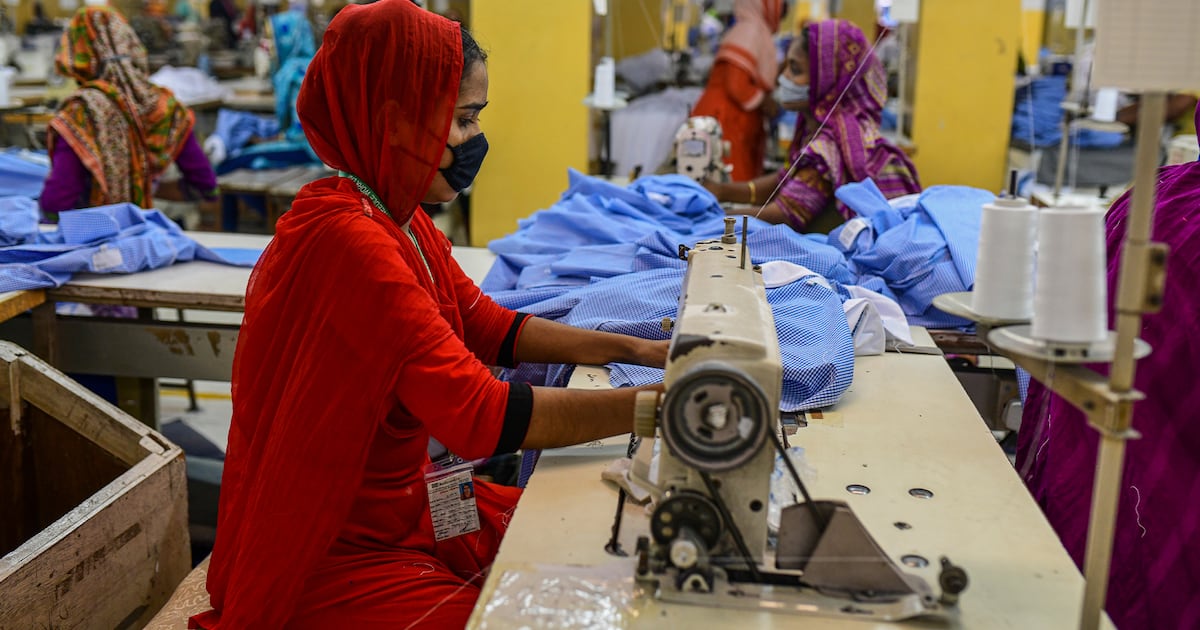A garment worker was shot dead and at least 20 others were injured on Monday in a violent clash between protesting workers and police in Bangladesh, forcing the closures of several factories.
The unrest erupted after hundreds of garment workers blocked a major highway, demanding higher wages and improved working conditions, in Ashulia, on the outskirts of Dhaka, police said.
Agitated workers hurled bricks at law enforcement vehicles, injuring police officers, a local police official said.
Bangladesh, one of the worldâs largest clothing production hubs, has been grappling with widespread protests in recent weeks, leading to the closure of dozens of factories.
This has further exacerbated an existing production backlog caused by political turmoil and recent floods, industry insiders said.
Garment industry leaders have urged the government to bolster security measures to ensure their production units can continue operating amid ongoing labour unrest, despite having addressed most of the workersâ demands.
âWe are calling for enhanced safety measures, as the factories remain vulnerable due to the unrest,â said Abdullah Hil Rakib, senior vice president of the Bangladesh Garment Manufacturers and Exporters Association. âWithout adequate security, the factories will continue to face disruptions.â
The government has formed a committee to address the workersâ issues. However, labour leaders stressed the need for more factory-specific discussions.
âSome factory owners and management lack sincerity in resolving the issues. In those cases, factory-based talks could help,â said Babul Akter, president of the Bangladesh Garment and Industrial Workers Federation.
The turmoil comes as Bangladeshâs interim government, led by Nobel Peace Prize laureate Muhammad Yunus, has taken charge, tasked with restoring stability and organising parliamentary elections.
The interim administration follows the deadliest violence the country has seen since its independence in 1971, which claimed over 700 lives and led to the resignation of Prime Minister Sheikh Hasina, who fled to India in early August.
Bangladeshâs ready-made garment industry, which supplies many of the worldâs top fashion brands, accounts for over 80 percent of the countryâs export earnings.
The country was ranked the third-largest exporter of clothing globally last year, after China and the European Union, exporting $38.4 billion worth of garments in 2023, according to the World Trade Organization.
Garment factory owners expressed concern over the impact of the unrest on production schedules.
âSome orders have already been diverted to other countries due to the instability,â one said.
By Ruma Paul, editing by Ed Osmond
Learn more:
Bangladesh Garment Industry Short on Cotton as Floods Worsen Protest Backlog
The disruption, on top of the unrest and protests that led to factory closures earlier this month, have caused garment production to fall by 50 percent, said Mohammad Hatem, president of the Bangladesh Knitwear Manufacturers and Exporters Association.

